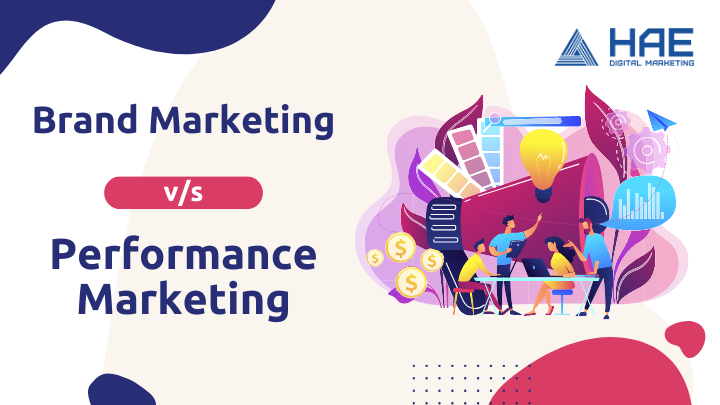Brand Marketing vs Performance Marketing
Introduction
In today’s fast-paced digital world, marketers often face a tough choice: brand marketing or performance marketing? Each serves a different purpose, and both are powerful in their own right. Knowing how they differ—and how to use them together—can be the key to unlocking real marketing success.
What is Performance Marketing?
Performance marketing is all about measurable results. Whether it’s a click, a lead, or a purchase, you only pay when the desired action happens. This approach uses digital tools like social media ads, search engines, and affiliate marketing to reach the right audience and track outcomes with precision.
Key Features:
-
Pay-per-action: You’re only charged when users take a specific action.
-
Metrics-focused: Think cost per click (CPC), cost per acquisition (CPA), and return on ad spend (ROAS).
-
Real-time optimization: Constant adjustments based on live data for better performance.
It’s ideal for businesses looking for quick wins and clear ROI from their ad spend.
What is Brand Marketing?
Brand marketing focuses on the big picture—how people see and feel about your business. It’s less about immediate results and more about building a strong, lasting identity in your customer’s mind.
Core Elements:
-
Storytelling: Sharing your brand’s values and purpose in a way that connects.
-
Consistency: Keeping your look, message, and tone the same across all channels.
-
Emotional connection: Building trust, loyalty, and long-term relationships.
Brand marketing lays the foundation for customer loyalty and sustained growth over time.
Brand vs. Performance Marketing: What’s the Difference?
At their core, brand and performance marketing serve different goals:
-
Brand marketing aims to shape perception and build trust. It’s long-term, emotional, and focused on how people feel about your brand.
-
Performance marketing is about driving immediate actions—like purchases or sign-ups—through targeted, data-backed campaigns.
One builds awareness and reputation, the other delivers direct results. But they’re not rivals—they’re partners.
Why Combine the Two?
When brand and performance marketing work hand in hand, the results can be powerful.
Here’s why it works:
-
Boosted ROI: A well-known brand makes performance campaigns more effective.
-
Stronger messaging: Consistent branding improves recognition and trust.
-
Balanced strategy: Immediate conversions and long-term customer loyalty.
Smart marketers know that combining the emotional pull of brand marketing with the precision of performance tactics leads to sustainable success.
Enter Performance TV
Performance TV takes traditional TV’s storytelling power and merges it with the targeting and tracking of digital ads. It’s a new way to reach specific audiences through connected TV (like smart TVs and streaming platforms) while measuring results in real time.
Why It’s Effective:
-
Targeted delivery: Serve ads to specific demographics and interests.
-
Trackable performance: Monitor impressions, conversions, and ROI.
-
Scalable reach: Reach wide audiences without sacrificing precision.
It’s the perfect middle ground for those who want both reach and results.
Final Thoughts: Finding the Right Balance
You don’t have to choose between building a brand and generating conversions. The most effective marketing strategies find a balance:
-
Brand marketing builds awareness, credibility, and emotional connections.
-
Performance marketing delivers fast, measurable outcomes.
Together, they create a full-funnel strategy that attracts, engages, and converts—while keeping customers coming back.
Conclusion
In a digital world where attention is scarce and competition is fierce, the blend of brand and performance marketing is more powerful than ever. By understanding how they complement each other, businesses can build campaigns that not only drive quick results but also create lasting brand value.
Stay connected with us for more insights and strategies that help your brand grow and thrive.

Comments
Post a Comment